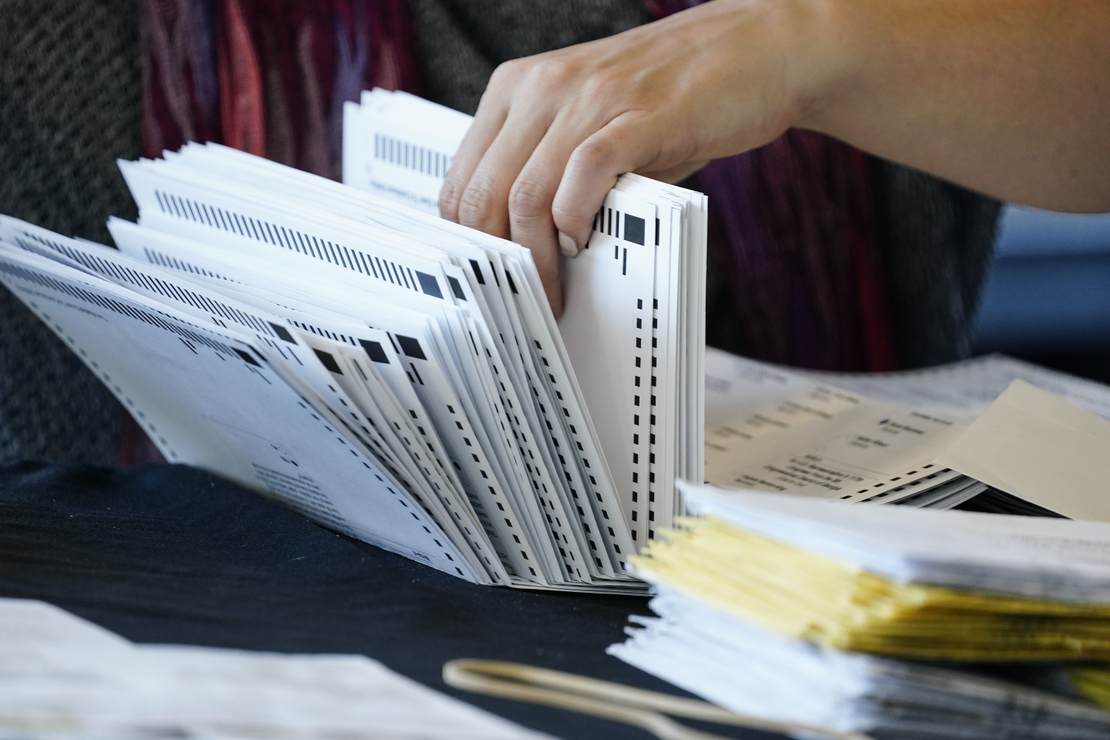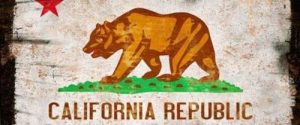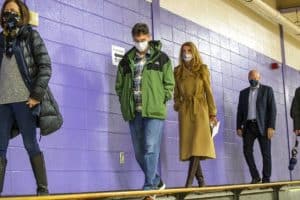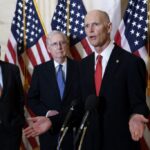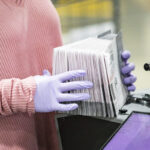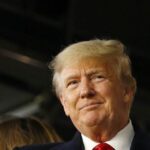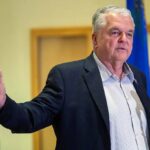Explosive testimony at a Senate hearing on the 2020 election Wednesday will make you wonder if Joe Biden really did win the state of Nevada by some 33,600 votes. An attorney for Donald Trump repeated a disputed claim Wednesday that there were four times more fraudulent votes than Biden’s margin of victory.
Nevada certified its vote for Joe Biden on November 23rd and the Electoral College has elected Joe Biden the winner of the election, but the count has been in dispute since Election Day and beyond.
In testimony before the U.S. Senate Homeland Security Committee, Trump attorney Jesse Binnall claimed that his statisticians, using open source information and databases, determined that 130,000 votes cast in the November 3rd election were fraudulent—nearly four times Biden’s win margin.
A judge threw out his lawsuit on behalf of President Trump alleging the fraud, as The Nevada Independent reported.
[The judge] summarily dismissed its claims of voter fraud and request for an overturn of election results in a ruling on Friday, writing that the campaign’s evidence provided “little to no value” based on questionable or “unsound” methodology, adding that the evidence failed to show any “credible or reliable evidence that the 2020 General Election in Nevada was affected by fraud.”The Trump campaign nonetheless appealed the decision to the state Supreme Court on Monday, saying in filings that the court failed to take into account “expert” testimony provided by the campaign and applied a higher evidentiary standard than required to prove sufficient voter fraud had occurred.
However, ABC News reported that Senator Rand Paul said that the judges “didn’t rule on whether there was fraud, as many cases were dismissed on procedural grounds before they were argued on the merits.”
“The courts have not said there isn’t fraud,” Paul said. “The courts simply didn’t rule on or hear from the fraud.”
Lawyers argued that oversight of the election continues to be necessary. Jim Troupis, who filed a suit for the Trump campaign in Wisconsin, followed Paul’s logic.
“If you don’t do this inquiry, there really isn’t going to be any analysis and there isn’t going to be an opportunity to get to the very integrity we all want,” Troupis said. “No one suggested at any point in the process that the allegations in Wisconsin are anything but serious and substantive,” Troupis said.
Binnall testified that Nevada’s election chaos began in August when lawmakers passed AB 4, the universal vote-by-mail measure that increased mail-in voting tenfold.
On August 3, 2020, after a rushed special session, Nevada legislators made drastic changes to the state’s election law by adopting a bill known as AB 4. The vulnerabilities of this statute were obvious: it provided for universal mail voting without sufficient safeguards to authenticate voters or ensure the fundamental requirement that only one ballot was sent to each legally qualified voter. This was aggravated by election officials’ failure to clean known deficiencies in their voter rolls. Because of AB 4, the number of mail ballots rocketed from about 70,000 in 2016 to over 690,000 this year.
The election was inevitably riddled with fraud and our hotline never stopped ringing. While the media and the Democrats accused us of making it all up, our team began chasing down every lead. Our evidence came both from data scientists and brave whistleblowers.
We know how easily the mail-in balloting system is gamed. It’s a ripe target for voter fraud as a study by former President Jimmy Carter and James Baker concluded in 2005.
“Citizens who vote at home, at nursing homes, at the workplace, or in church are more susceptible to pressure, overt and subtle, or to intimidation. Vote buying schemes are far more difficult to detect when citizens vote by mail.”
The Carter Center claimed in 2020 that some things could be done to help secure the mail-in vote, but said that even in COVID times people should have the option to vote in person and that states should use stringent security measures. Mass mailing of ballots, which Nevada did with no ballot request, was not on the list of security measures.
Binnall said that their data study, along with “brave whistleblower” testimony, revealed that there were at least 130,000 unique fraudulent votes. Here’s the breakdown of the ones they could verify and have been provided to the public.
- 42,000 people voted more than once
- 1,500 dead voters cast ballots
- 19,000 non-Nevada residents voted (number doesn’t include students and military)
- 8,000 people voted using non-existent addresses
- 15,000 votes were cast from commercial addresses or vacant houses
- 4,000 ineligible foreign nationals voted
Binnall said 130,000 is probably a low number.
[T]he actual number is almost certainly higher. Our data scientists made these calculations not by estimations or statistical sampling, but by analyzing and comparing the list of actual voters with other lists, most of which are publicly available. To put it simply, they explained their methods so that others could check their work.
The Trump attorney said that so far no one else has even tried to double-check their findings.
After the election, Binnall announced that Trump had won.
“Donald Trump won … after you account for the fraud and irregularities that occurred,” campaign attorney Jesse Binnall told reporters as he announced a new lawsuit asking a state judge to declare Trump the winner or to invalidate the presidential vote results.
Also testifying at the hearing Wednesday was the former head of Cybersecurity and Infrastructure Security who was fired by President Trump. He said it was time to put fears of voter fraud aside. Politico reported that Chris Krebs was the only witness called by the Democrats and he used the occasion to toss water on the idea of voter insecurity and fraud.
“Some people just don’t want to hear how these systems actually work and what’s actually capable across these systems,” Krebs said, emphasizing that paper receipts that accompany election systems in nearly every state in the country help minimize the prospect of fraud.
Krebs also described a worsening climate of threats against elections workers, fueled by the false fraud claims, that he worried would have a “chilling effect” in future cycles.
Binnall maintains his assertion of enough voter fraud to cost Trump the Nevada election. “Our evidence has never been refuted, only ignored,” he said.
This week’s testimony on Capitol Hill may give Binnall’s study the attention and scrutiny he believes it deserves.

